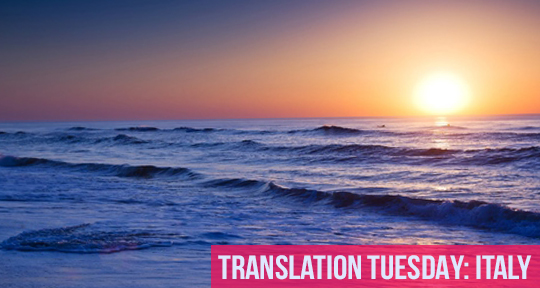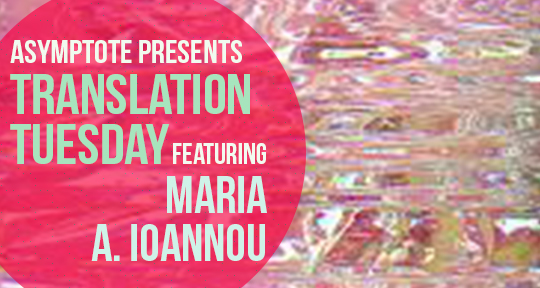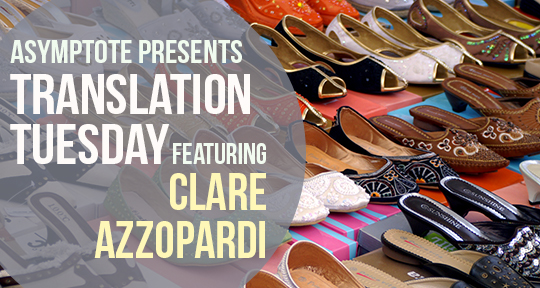In this Translation Tuesday, Italian poet Erri De Luca reflects on the Mediterranean migrant crisis and movement across borders, seas, and languages. From desert crossings and the “thrashing of dust in columns” to exploitation in the first world, De Luca poignantly evokes the struggles faced by the newest Europeans.
Six voices
It was not the sea that welcomed us
we welcomed the sea with open arms.
Descending from highlands burnt by war and not the sun
we crossed the desert of the Tropic of Cancer.
When from a high ground we were able to view the sea
it was a finish line, a caress of waves at our feet.
Ending there was Africa, the under-sole of ants,
from them caravans had learned to tread.
Under the thrashing of dust in columns
the first man alone is required to raise his eyes.
The others follow the heel that precedes them,
the voyage on foot is a trail of backs.



